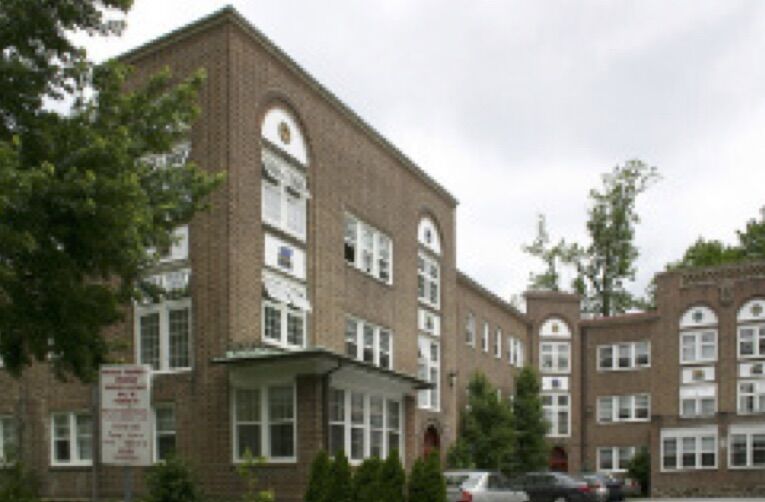Office of Fraternity and Sorority Life Implements Social Moratorium for IFC, MGC and Panhellenic Chapters
College Hall Apartments have historically been associated with University night life.
September 16, 2020
Among the continuously growing list of changes made to the Fall 2020 semester at the University, during the first week of August, the Office of Fraternity and Sorority Life (OFSL) implemented a Social Moratorium for the IFC, MGC and Panhellenic organizations on campus. This means that, amidst the growing health concerns of COVID-19, there will be no social activities on campus for these groups. In addition to The CARITAS Commitment, these measures will help target the spread of COVID-19 and keep students at the University safe.
According to Sarah Hernandez, the Assistant Director of OFSL, other colleges across the nation were implementing their own forms of social moratoriums on Greek Life, which is what prompted the University to do the same.
“We felt it was the best option for our community to ensure that Greek organizations were following University and state mandated guidelines both on and off campus,” Hernandez said.
The Social Moratorium is set to last indefinitely while OFSL attempts to figure out a way to host these social events safely. In the meantime, OFSL administrators are encouraging all students to be responsible and to follow all of the protocol issued by the University. Even though the social aspect of these organizations has been suspended, Hernandez mentioned that this is the only aspect of organizational operations being changed, and that members will still share a sense of community in other, safer ways.
The responsibility of ensuring that this Social Moratorium is successful and adhered to by all students will fall to the individual IFC, MGC and Panhellenic organizations and their ability to hold students accountable for their actions.
“I think this Moratorium, if viewed and used correctly, can help the chapter leadership be more effective leading such large groups through a pandemic like COVID,” Hernandez said. This moratorium is not a punishment, but rather an opportunity for growth. However, if students are unable to follow the guidelines, there will be significant repercussions in the form of sanctions placed on violating members’ chapters.
These sanctions, provided by OFSL and the Dean of Students, should already be familiar to students belonging to FSL organizations, according to Hernandez. They were based on the Villanova Chapter Accountability Process, which was already in place and governed these organizations even before COVID-19.
If any students from these organizations are caught advertising a social event, there will be a monetary fine placed on the chapter. Advertising includes social media platforms and individual chapter GroupMe chats, as well as putting up posters around campus. A fine will still be administered even if the event is only advertised and does not actually take place.
If more than 25 members of the same chapter are caught having any social event, that particular chapter will not be allowed to recruit members for the upcoming calendar year. If more than 25 students from the University, regardless of what chapter they are in, are caught having a social event, the chapter hosting the event will not only lose the ability to participate in recruitment, but they will also be fined.
Finally, if any chapter hosts a social event attended by a large group of people, that chapter will no longer be recognized on campus. All of these sanctions are put into place to keep community members safe. All of this information regarding the Social Moratorium as well as Fraternity and Sorority Life can be found on the Villanova University Student Life website.
“Please adhere to the moratorium and the University policies and guidelines,” Hernandez said. “We all worked very hard to make sure that campus is a safe place to be this semester, but it only works if everyone does his or her part. Hang with us a little longer and we can have a safe and enjoyable on-campus experience.”











